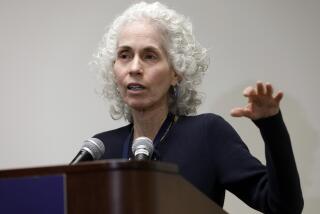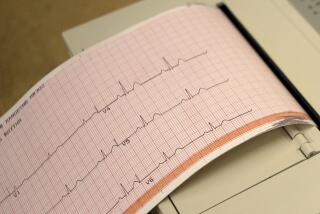More doctors, hospitals use electronic over paper medical records

Hospitals are increasingly switching from paper to electronic medical records but aren’t necessarily using them to improve the quality or efficiency of care, according to a new report by the Robert Wood Johnson Foundation.
Forty-four percent of hospitals had basic electronic health records in 2012, up from 27% the previous year, according to the report. Overall, the number of hospitals using such medical records has tripled since 2010.
Some of the biggest jumps occurred in rural hospitals, which increased from 1 in 10 in 2010 to 1 in 3 in 2012.
More physicians also are using electronic records, with an increase from 26% in 2010 to 38% last year. Smaller hospitals and physician practices have been slower to adopt the new technology than larger hospitals and groups, the report said.
The federal government began funding the implementation of electronic records at hospitals and other healthcare providers in 2010. That has helped motivate hospitals, physicians, clinics and other providers to make the switch.
Although more healthcare providers are using computerized records, not all are using them to make healthcare more efficient, the report said. For example, few hospitals are able to share records with other hospitals to reduce duplication of tests.
The technology can help make for safer and higher quality care, but more must be done to make that happen, said Michael Painter, senior program officer with the Robert Wood Johnson Foundation.
“The federal incentives to drive the implementation of the electronic health records are working,” he said. “But we have big, big challenges ahead of us.”
In addition, the U.S. still falls behind other countries in the adoption of electronic records, he said. The report was coauthored by the Mathematica Policy Research and Harvard School of Public Health.
ALSO:
Arizona wildfire: Yarnell reopens to residents unsure of losses
Immigration bill’s border ‘surge’ would be a boon for businesses
Friends identify screams on 911 recording as George Zimmerman’s
More to Read
Sign up for Essential California
The most important California stories and recommendations in your inbox every morning.
You may occasionally receive promotional content from the Los Angeles Times.










